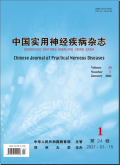中国实用神经疾病杂志2024,Vol.27Issue(7):906-910,5.DOI:10.12083/SYSJ.231091
基于小肠细菌过度增殖的肠道微生物失调与帕金森病的相关性
Correlation between gut microbiota dysregulation and Parkinson's disease based on small intestinal bacterial overgrowth
摘要
Abstract
There is growing evidence that microbiota and the brain are closely linked through the gut-brain axis.Parkinson's disease(PD)is a common neurodegenerative protein disorder for which no disease interventions are available.Gut microbiota dysbiosis and its metabolites may play a role in the onset and progression of PD,so it is also a potential way to treat PD.Small intestinal bacterial overgrowth(SIBO)has a high prevalence in PD and may be associated with gastrointestinal symptoms(e.g.bloating,belching,abdominal pain,etc.)and fluctuations in motor symptoms.Considering the potential mechanisms of SIBO on PD onset,progression,eradication of SIBO,and other modulation/manipulation of the small intestinal microbiota may slow down PD progression.Therefore,this review focuses on the progress of research on gut microbiota dysbiosis and its metabolites and PD,which is the application of SIBO in PD,to further understand the link between the two,delay or stop the onset and progression of PD,and provide new ideas for treatment.关键词
肠-脑轴/肠道微生物群/α-突触核蛋白/帕金森病/小肠细菌过度增殖Key words
Gut-brain axis/Gut microbiota/α-synuclein/Parkinson's disease/Small intestinal bacterial overgrowth分类
医药卫生引用本文复制引用
周倩,杨兴隆..基于小肠细菌过度增殖的肠道微生物失调与帕金森病的相关性[J].中国实用神经疾病杂志,2024,27(7):906-910,5.基金项目
国家自然科学基金地区基金项目(编号:81960242) (编号:81960242)

